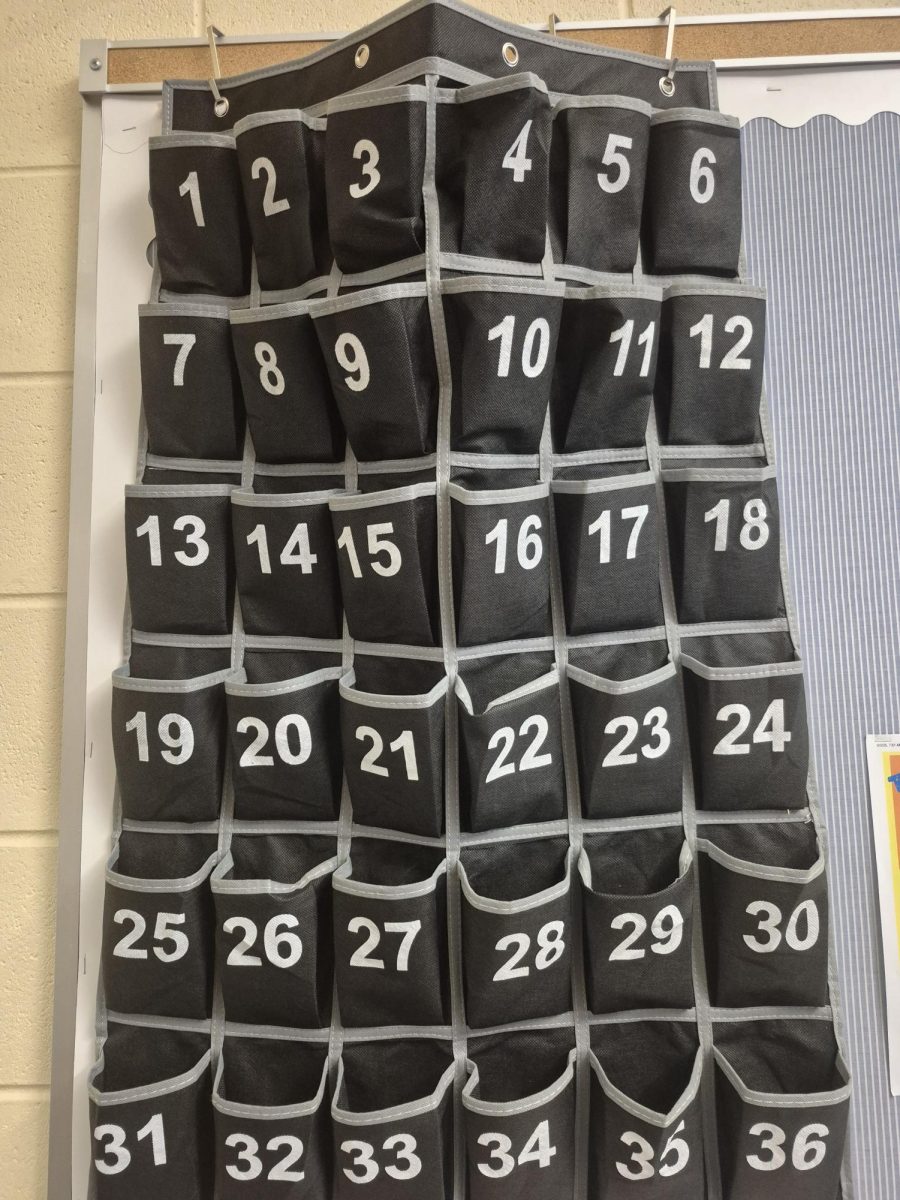Jr. Kaitlyn Onela woke up, ate breakfast, and headed off to her first day of school. She was super excited to go to her first hour, Theory of Knowledge. When she arrived to class, she saw a few familiar faces among her thirty classmates. First hour went by and second hour rolled around; Onela saw that half of her first hour was also in her second hour; and the next hour, and next hour, and for the rest of her classes except for her French class. Why?
Well, Onela has the same fifteen people from her first hour in all of her classes with the exception of one class for the next two years of high school, because she is enrolled in the International Baccalaureate (IB) Diploma Program. In this rigorous program, classes consist of IB English, IB math, IB biology or physics, IB history, an IB language class, and one elective of the student’s choice. And since there are fifteen students enrolled in the full program, those 15 will all be in the same IB classes.
On one hand, this situation can be great; no one wants to go through high school with flaky friendships, and the IB program can be a good chance to make strong friendships. However, there’s always the possibility that not everyone in the program will get along well. The thought of not getting along is one of the main reasons why Jr. IB Candidate Allison Teav was hesitant to join the program. “I was really hesitant because I was afraid that I wouldn’t like the other people, and that the whole group wouldn’t be very close together. Or maybe like I, myself, wouldn’t be close to everyone and everyone else was close to each other.” It’s difficult to tell whether or not a group of students will completely get along even if they only have one class together for just one year.
When the same group of teenagers are put together in almost every class for two years, there’s bound to be conflict. That conflict is also bound to happen at the beginning of the program when no one knows each other; as IB Candidate Sr. Jayda Hoang explained. “They [conflicts] mainly start junior year, because we’re all new to the program. We all try to build that community that we hear so much about, and we do all want to be friends. And I think that because there is only so little of us that we do tend to bump heads.” Hoang’s reasons why the senior candidates “would get into drama” was that the seniors “had conflicting opinions.” Hoang also mentioned that in her junior year, “… there was a moment where there was a divide between the two groups in the IB program.” However, conflicts don’t just happen at the beginning of the program.
After spending two years with each other in nearly every class, candidates can get tired of each other. As IB alumna Babs Hough put it, “The conflicts we did have were a result of us all spending so much time together.” Hough went on to explain that “by the end of two years having almost every class together, we did begin to get on each other’s nerves.” She said, “For example, at the end of our senior year as a class we decided that we wanted to get our IB teachers gifts as a token of appreciation. We debated who to buy what for and how much to spend. At the end of the day we didn’t all come to an agreement.” So, candidates clash against each other both at the beginning and end of the program.
At the beginning, the IB program seems pretty intimidating to new candidates, since students will have to see the same faces every day in almost every class for the next two years. However, despite the fear future IB candidates feel before the program, they are nevertheless excited to jump into the program. “Now that I’m part of it, and I got to see the whole group. I think they’re pretty alright, and I want to get to know them better.” Teav says, “I’m excited to know them better, bond with them.”
Putting the same group of students together for two years will cause some conflict, but it will also bring students together to really bond with each other. Since students all have roughly the same large amount of work to do and go through the same stress, they pull each other through and develop close friendships. “I think that all being around each other and going through the same tough things made us closer. We stressed out about assignments together and laughed together and it just made us closer” Hough said.
And while it may seem that all the IB program creates more tension than friendships among the candidates, it actually ends up bringing the students closer together like a family. “While going through a demanding program caused stress on our relationships with one another, it also made us close”, Hough said. Yes, there are, and always will be, conflicts that arise among IB students, but they all come together and “it all works out in the end,” Hoang concludes; “You just gotta remember that we are an IB family. We’re all going through the same like stress levels with the homework, and we have to kind of stick together to get through it.”







